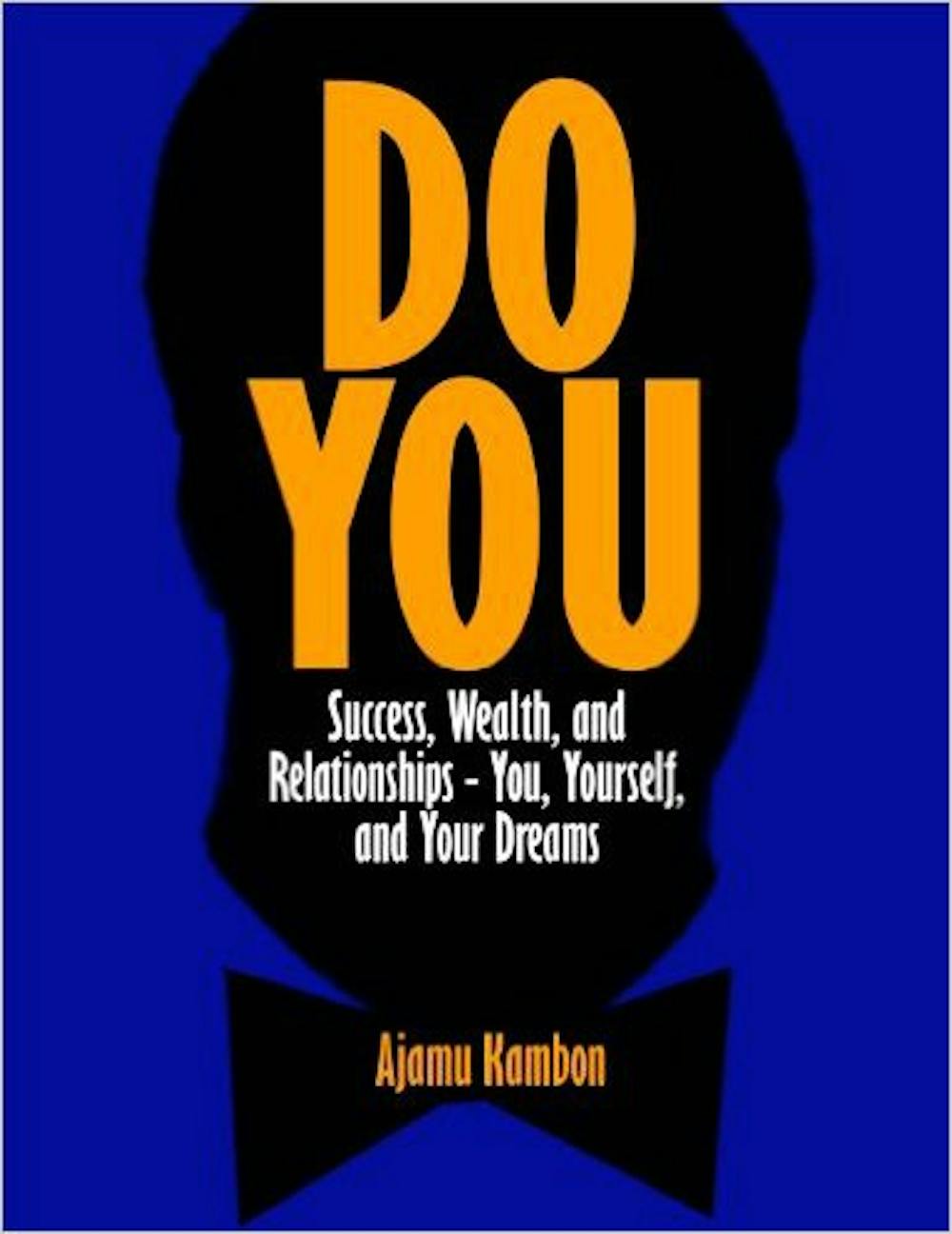This month, Ajamu Kambon, an entrepreneur and class of 2014 Commerce graduate, published “Do You: Success, Wealth and Relationships — You, Yourself, and Your Dreams,” an eBook containing advice on topics ranging from financial security and career fulfillment to respecting others and avoiding the passing of judgment.
“This is not a self-help book (I hate that word) [sic]. This is a book where I write what comes off the top of my dome,” Kambon writes in the eBook.
Though somewhat disjointed, the book is a quick read. In a total of 37 pages, Kambon emphasizes personal ambition and encourages readers to unabashedly pursue their dreams. He also includes sections on relationships, religion and politics, and concludes with ten steps to monetary success.
“Success and monetary wealth, no matter what, can only come with hard work and sacrifice. There are no corners or cheat sheets,” Kambon writes.
Kambon’s financial advice is one highlight of the book. He provides specific, concise advice for saving and investing money — written in terms a novice investor can easily understand — and also offers numerous concrete suggestions for earning residual income as a student.
Throughout the book, Kambon writes with a sense of nearly frantic urgency. He encourages his readers to find every opportunity they can to make money or advance their careers and do so as quickly as possible — perhaps by writing an eBook.
“If you like to write or think of something people would love to read or know about, publish an eBook. It costs nothing to publish an eBook,” Kambon writes, listing publishing as one of many ways to increase income.
Unfortunately, this emphasis on maximizing earnings and professional connections often overlooks one crucial component — the product. While pursuing as many projects as possible is one way to build a career, it is often advisable to choose quality over quantity. “Do You,” which would have benefited greatly from even a cursory proofreading to remove spelling and grammatical errors, inadvertently illustrates this point.
Kambon also presents disconcerting views on the purpose of higher education.
“Education is great, but it all leads to one thing, which is getting you to make a substantial income. If you already make great income doing something you love, there is no reason for you to waste $30,000 a year on class that will teach and prepare you to make $30-50k.”
In context, Kambon suggests someone who successfully starts a business before college does not necessarily need further education. While this is a fair point, it is quite disheartening that a graduate of the University believes his degree is solely a prerequisite for a paycheck.
Nonetheless, Kambon is undoubtedly sincere. He hopes his book will help students find success and pursue their dreams, and it very well may do so. His positivity is contagious and his account of overcoming personal adversity is genuinely inspirational. Perhaps if he decides to publish an autobiography later in his career, he will find a co-author and editor to help him with the details.







